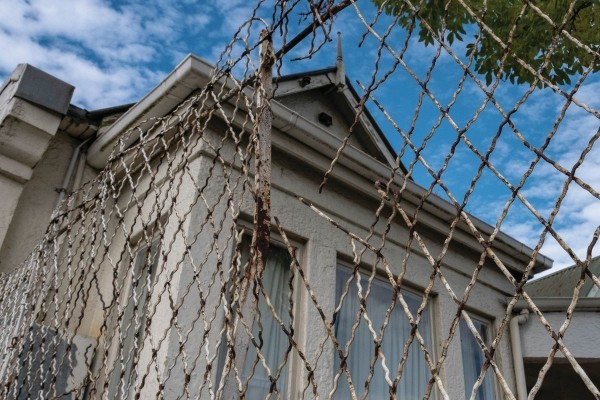A recent study conducted by Otago Uni has found that many students live in miserably cold, damp and mouldy homes. Most students also don’t know that StudyLink can help with massive power bills.
The nationwide study, led by Dr. Kimberley O’Sullivan, was conducted by He Kāinga Oranga, the Housing and Health Research Programme, at the Uni. Of the 522 students who participated in the study, almost half confirmed that their flats were “sometimes or always damp”. Leah told Critic Te Arohi, “no matter how much dehumidifier time, there was constant dampness and nothing could dry”. Two-thirds of students said that it was cold enough for them to see their breath inside their flats, while a whopping 79% said that they were cold enough to be shivering in their flats. One student we spoke to earlier this year said it was cold enough “to refrigerate our milk in the bedroom”. Yikes.
A common symptom of a cold damp flat is mould, and not the nice kind on your blue cheese. Around one third of students have mould the size of an A4 sheet of paper being cultivated in their home. Shockingly, around half of Māori and disabled students’ flats have visible mould, demonstrating the intersectional inequality of the issue. Lawrence told Critic Te Arohi that they have “6 square metres of mould growing on the ceiling” in their “painfully cold [flat]”. The landlord never fixed it, instead telling him to open windows (you know, to freeze). Maybe they wanted to advertise it as a flat garden. Speaking of which, you should register that mould for our flat garden competition.
All this makes flats pretty miserable, and the survey found many students directly associated their living situation with depression and anxiety. This “significantly affects students’ mental health and their ability to perform daily activities,” said Dr. O’Sullivan. As well as the damaging mental impact, having cold flats also raised significant health concerns, including increased the risk of chest infections and pneumonia.
StudyLink can actually offer some help in these situations, offering up to $200 in cash grants to help people pay outstanding power bills, or to reconnect their electricity or gas if needed. However, only 8% of students were actually aware of this. Instead, the survey found three-quarters of students just cut back on heating to save money on power. Deborah told Critic Te Arohi that they only use heating during their free Hour of Power to save on costs; they just stay cold the other 23 hours of the day. Other people just suck up the high power bills, in some cases loading it onto their student loans via course-related costs.
Critic hopes that the Government and universities will take Dr. O’Sullivan’s advice, that “it’s clear more targeted support is required for students.” But at the rate things are going, students may as well just continue with internalising their pain. At least it’s warm in your heart.






